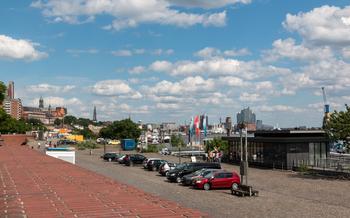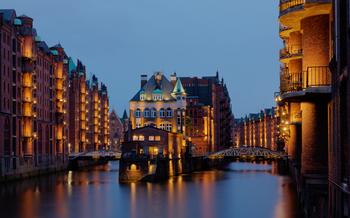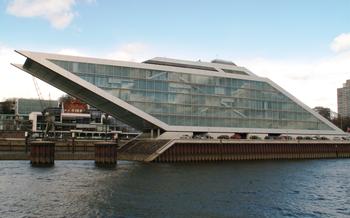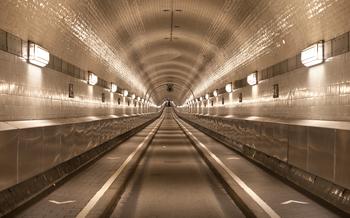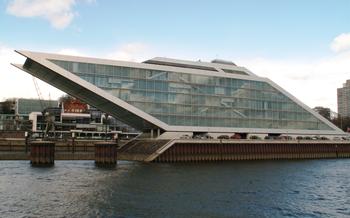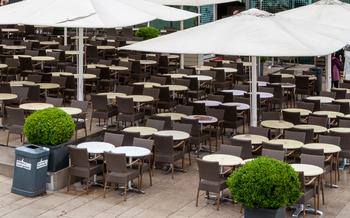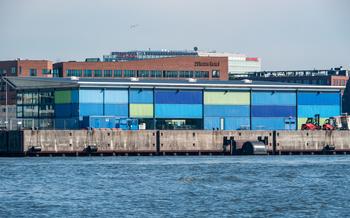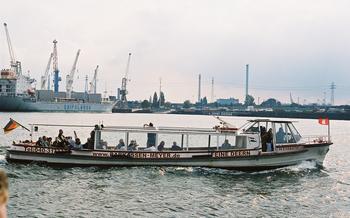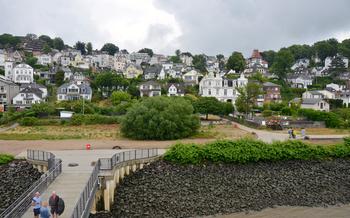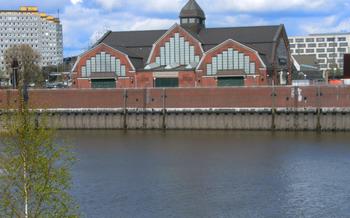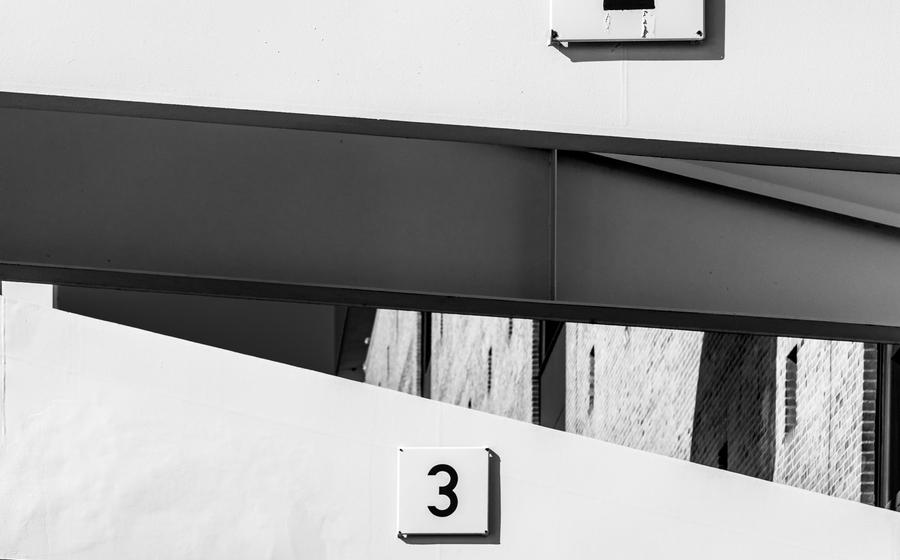
Elbphilharmonie
- A City of Contrasts
- The Elbphilharmonie: A Masterpiece of Modern Architecture
- A Place for Music Lovers
- A Must-See for Visitors to Hamburg
- How to Get There
- When to Visit
- What to See and Do
- Where to Eat and Drink
- Where to Stay
- What to Bring
- What to Know Before You Go
- Tips for Saving Money
- Hidden Gems
- Fun Facts
A City of Contrasts
Hamburg is a city of contrasts, where old and new blend together to create a unique and vibrant atmosphere. The city's maritime history is evident in its historic warehouses and canals, while its modern architecture reflects its status as a major economic and cultural center. The Elbphilharmonie, a stunning concert hall located in the HafenCity district, is a symbol of Hamburg's transformation from a traditional port city to a modern metropolis.
The Elbphilharmonie: A Masterpiece of Modern Architecture
The Elbphilharmonie is a striking example of modern architecture, designed by the renowned Swiss firm Herzog & de Meuron. The building's unique shape, resembling a billowing sail, is a nod to Hamburg's maritime heritage. The exterior is clad in shimmering glass panels, creating a dazzling effect that reflects the surrounding cityscape and the waters of the Elbe River.
The Elbphilharmonie's most distinctive feature is its innovative use of glass and steel. The glass façade allows natural light to flood into the building, creating a bright and airy interior. The steel framework provides structural support and adds a touch of industrial chic to the building's overall aesthetic.
The Elbphilharmonie's acoustics are considered to be among the best in the world. The concert hall is designed with a "vineyard-style" seating arrangement, which allows for optimal sound distribution. The walls and ceiling are made of a special material that absorbs and diffuses sound waves, creating a rich and immersive acoustic experience.
A Place for Music Lovers
The Elbphilharmonie is a world-class concert venue that hosts a wide variety of musical performances, from classical to jazz to contemporary music. The Grand Hall, with its innovative acoustics and seating for over 2,000 people, is a particularly impressive space. The acoustics of the hall were designed by Yasuhisa Toyota, who used a combination of computer modeling and physical experiments to create a space that would provide the best possible sound for both performers and audience members.
The Elbphilharmonie is home to the NDR Elbphilharmonie Orchestra, one of Germany's leading orchestras. The orchestra performs a variety of concerts throughout the year, including classical, romantic, and contemporary works. The Elbphilharmonie also hosts a number of guest orchestras and soloists from around the world.
In addition to concerts, the Elbphilharmonie also hosts a variety of other musical events, such as recitals, chamber music concerts, and workshops. There is something for everyone at the Elbphilharmonie, making it a must-visit for music lovers of all ages.
A Must-See for Visitors to Hamburg
The Elbphilharmonie is a must-see for visitors to Hamburg. This iconic building is not only a world-class concert venue but also a major tourist attraction. The striking silhouette of the Elbphilharmonie, with its glass and steel facade, is a symbol of Hamburg's transformation from a traditional port city to a modern metropolis.
The Elbphilharmonie offers a variety of ways for visitors to experience its unique architecture and acoustics. The observation deck, located on the 37th floor, offers panoramic views of the city, the harbor, and the Elbe River. Visitors can also take guided tours of the building, which provide insights into its construction and design.
The Elbphilharmonie is home to two concert halls, the Grand Hall and the Recital Hall. The Grand Hall, with its innovative acoustics, is one of the most sought-after concert venues in the world. Visitors can attend a variety of musical performances, from classical concerts to jazz and pop shows.
The Elbphilharmonie's Plaza, a large public square at the base of the building, is a popular meeting spot for locals and tourists alike. The Plaza offers a variety of restaurants, cafés, and shops, as well as free Wi-Fi.
How to Get There
The Elbphilharmonie is conveniently situated in the vibrant HafenCity district of Hamburg, making it easily accessible by public transportation or car. For those arriving by train, the Hauptbahnhof (central station) offers direct S-Bahn (urban rail) connections to the Elbphilharmonie station. From there, it's just a short walk to the concert hall.
If you prefer to travel by bus, numerous lines stop within walking distance of the Elbphilharmonie, providing connections to various parts of the city. The nearest bus stop is Am Kaiserkai, served by lines 111 and 60.
For those arriving by car, the Elbphilharmonie offers a convenient parking garage located directly beneath the building. The entrance is situated on Am Kaiserkai. Please note that parking fees apply.
Once you've arrived at the Elbphilharmonie, the Plaza, a spacious public square surrounding the building, serves as the main entrance. From here, you can access the concert halls, the observation deck, and the various restaurants and cafés.
When to Visit
The Elbphilharmonie is open to visitors year-round, but certain times of the year offer distinct advantages. During the summer months, the weather is generally milder, making it more enjoyable to explore the city and take advantage of the outdoor spaces around the concert hall. However, it's worth noting that this is also the peak tourist season, so crowds can be larger and prices for accommodation and attractions may be higher.
If you prefer a quieter experience, consider visiting during the shoulder seasons (spring and autumn) or even in the winter. The weather can be unpredictable during these times, but you'll likely encounter fewer crowds and may be able to find better deals on flights and hotels.
To make the most of your visit, it's a good idea to plan your trip around the Elbphilharmonie's concert schedule. The concert hall hosts a wide variety of performances throughout the year, including classical concerts, jazz shows, and contemporary music events. Check the Elbphilharmonie's website for a full list of upcoming events and to purchase tickets in advance.
It's also worth noting that the Elbphilharmonie is a popular venue for special events and festivals. If you're interested in attending a particular event, be sure to book your tickets well in advance to avoid disappointment.
What to See and Do
A visit to the Elbphilharmonie is not complete without taking a guided tour. These tours offer a fascinating glimpse into the building's history, architecture, and acoustics. Visitors can learn about the innovative construction techniques used to create the iconic glass and steel facade, as well as the state-of-the-art sound system that makes the Grand Hall one of the most acoustically perfect concert venues in the world.
Of course, no visit to the Elbphilharmonie would be complete without attending a concert or performance. The venue hosts a wide variety of musical events, from classical concerts to jazz performances to electronic music festivals. Visitors can choose from a variety of seating options, including the Grand Hall, the Recital Hall, and the Kaistudio.
For those who want to experience the Elbphilharmonie's stunning architecture and views without attending a concert, the observation deck is a must-see. Located on the 37th floor of the building, the observation deck offers panoramic views of Hamburg, the Elbe River, and the surrounding HafenCity district. Visitors can take in the breathtaking views from both indoor and outdoor viewing platforms.
Where to Eat and Drink
The Elbphilharmonie offers a variety of dining options to suit every taste and budget. The Störtebeker Elbphilharmonie restaurant, located on the 6th floor, offers stunning views of the city and a menu of modern European cuisine. For a more casual meal, the Clouds café on the 37th floor offers a selection of light bites and drinks, as well as panoramic views of the city.
If you're looking for a more affordable option, there are several restaurants and cafés located in the HafenCity district. The St. Pauli Hafenbastion is a popular choice for its traditional German cuisine and lively atmosphere. For a more international flavor, The Saffron offers a variety of Indian dishes.
No matter what your budget or taste, you're sure to find something to satisfy your appetite near the Elbphilharmonie. Here are a few recommendations:
- Störtebeker Elbphilharmonie (6th floor): Modern European cuisine with stunning views
- Clouds (37th floor): Light bites and drinks with panoramic views
- St. Pauli Hafenbastion: Traditional German cuisine in a lively atmosphere
- The Saffron: Indian cuisine with a modern twist
- Diekmann's Elbterrasse: German cuisine with a focus on seafood
Insider tip: For a truly unique dining experience, book a table at the Störtebeker Elbphilharmonie restaurant during sunset. The views of the city lights are simply breathtaking.
Where to Stay
When planning your trip to Hamburg and your visit to the Elbphilharmonie, choosing the right accommodation is essential. Fortunately, there are plenty of options to suit different budgets and preferences.
For those seeking a luxurious experience, the Hotel Vier Jahreszeiten is an excellent choice. This five-star hotel is located directly opposite the Elbphilharmonie, offering stunning views of the building and the Elbe River. The hotel features elegant rooms and suites, a Michelin-starred restaurant, and a rooftop terrace with panoramic city views.
For a more affordable option, consider the Hotel Hafen Hamburg. This three-star hotel is located just a short walk from the Elbphilharmonie and offers comfortable rooms, a breakfast buffet, and a cozy bar.
If you're traveling on a tight budget, the Generator Hostel Hamburg is a great choice. This trendy hostel is located in the heart of the HafenCity district and offers a range of dormitory rooms and private rooms. The hostel has a social atmosphere, a bar, and a communal kitchen.
No matter your budget or preferences, you're sure to find the perfect accommodation near the Elbphilharmonie. Be sure to book your stay in advance, especially if you're visiting during the peak tourist season.
What to Bring
When visiting the Elbphilharmonie, it's essential to pack appropriately to ensure a comfortable and enjoyable experience. Here are some items to consider bringing:
-
Comfortable shoes: As you'll be doing a fair amount of walking, comfortable shoes are a must. The Elbphilharmonie is a large building, and you'll likely spend several hours exploring it. Choose shoes that offer good support and cushioning to keep your feet from getting tired.
-
Camera: The Elbphilharmonie is a stunning building, and you'll want to capture your memories with a camera. The observation deck offers panoramic views of the city, and the concert hall is a work of art in itself. Don't forget to bring your camera to capture the beauty of this architectural marvel.
-
Jacket or sweater: Hamburg's weather can be unpredictable, even in the summer. It's always a good idea to bring a jacket or sweater, especially if you're planning on spending time outdoors on the observation deck. The concert hall is also air-conditioned, so a light jacket or sweater can help you stay comfortable during the performance.
What to Know Before You Go
Before your visit, it's essential to be aware of a few things to ensure a smooth and enjoyable experience.
Dress Code: The Elbphilharmonie maintains a smart casual dress code. Avoid wearing shorts, flip-flops, or sportswear.
Security Measures: Like many public venues, the Elbphilharmonie has security measures in place. Expect to go through a security check upon entry.
Accessibility: The Elbphilharmonie is committed to providing access to all visitors. Wheelchair ramps, elevators, and accessible restrooms are available.
To make the most of your visit, plan. Check the Elbphilharmonie's website for the latest information on events, concerts, and exhibitions. Consider booking tickets or guided tours in advance, especially during peak tourist season.
By following these tips, you can ensure that your visit to the Elbphilharmonie is both enjoyable and memorable.
Tips for Saving Money
Visiting the Elbphilharmonie doesn't have to break the bank. Here are some tips for saving money:
-
Discounts for students and seniors: Students and seniors can enjoy discounted rates on tickets to concerts and performances. Be sure to bring your student ID or proof of age to take advantage of these discounts.
-
Free admission to the observation deck: The Elbphilharmonie's observation deck offers stunning views of the city, and it's free to visit! Take advantage of this opportunity to see Hamburg from a new perspective without spending a dime.
-
How to find cheap tickets for concerts: If you're on a tight budget, there are still ways to score cheap tickets to concerts at the Elbphilharmonie. Check the venue's website for special offers and discounts, and consider attending concerts during the off-season or on weekdays when prices are typically lower.
Hidden Gems
Beyond the Elbphilharmonie's iconic facade and world-renowned acoustics, the HafenCity district is brimming with hidden gems waiting to be discovered. For those willing to venture off the beaten path, there are lesser-known attractions, charming restaurants, and unique experiences that offer a glimpse into the neighborhood's rich history and vibrant culture.
One such hidden gem is the International Maritime Museum. Tucked away in a historic warehouse, this museum houses an impressive collection of maritime artifacts, model ships, and interactive exhibits that tell the story of Hamburg's seafaring past. Visitors can learn about the city's role in global trade, explore the lives of famous explorers, and even climb aboard a replica of a Hanseatic cog, a type of medieval trading ship.
For those seeking culinary delights, the Markthalle Hamburg is a must-visit. This indoor market is a haven for food lovers, with over 100 stalls selling everything from fresh produce and artisanal cheeses to exotic spices and gourmet treats. Visitors can sample local specialties like Fischbrötchen (fish sandwiches) and Labskaus (a hearty beef and potato dish), or simply soak up the lively atmosphere while browsing the colorful stalls.
Another hidden gem in the HafenCity district is the Wasserschloss, a beautiful 17th-century castle surrounded by a picturesque moat. Originally built as a hunting lodge for the Dukes of Schleswig-Holstein, the Wasserschloss now houses a museum dedicated to the history of Hamburg's water supply. Visitors can explore the castle's grand halls, learn about the city's innovative water management systems, and enjoy stunning views of the surrounding parkland.
For those seeking a unique perspective on the HafenCity district, a harbor cruise is a must. Several companies offer guided tours that take visitors past the Elbphilharmonie, the Speicherstadt warehouse district, and other landmarks. Along the way, guides share fascinating stories about the city's maritime history and point out hidden gems that are often missed by land-based visitors.
Fun Facts
The Elbphilharmonie is a treasure trove of interesting facts and stories. Did you know that the building's construction was delayed by several years due to unexpected geological challenges? The site where the Elbphilharmonie now stands was once apeicher, or warehouse, and the foundation had to be reinforced to support the weight of the building.
Another fun fact: the Elbphilharmonie is home to the world's longest escalator, which stretches for over 80 meters. It's a popular spot for visitors to take photos and videos, and it's a great way to get a glimpse of the building's impressive interior.
And finally, here's a quirky anecdote: during the construction of the Elbphilharmonie, a group of peregrine falcons took up residence on the building's exterior. The falcons became a bit of a local celebrity, and their nesting site was even equipped with a webcam so that people could watch them live.
